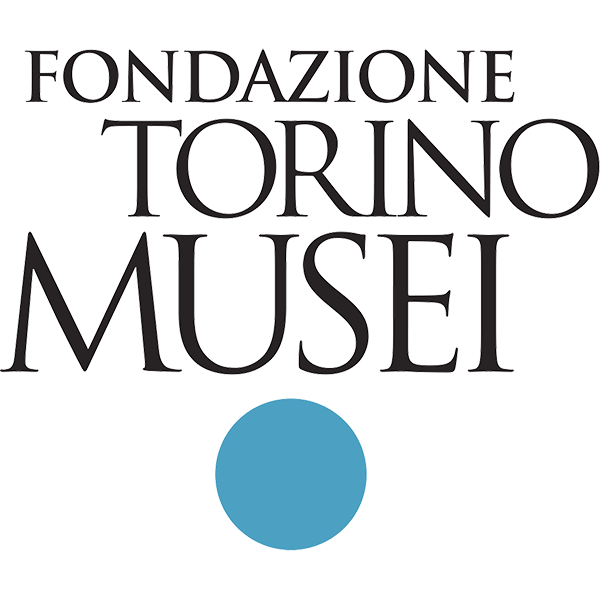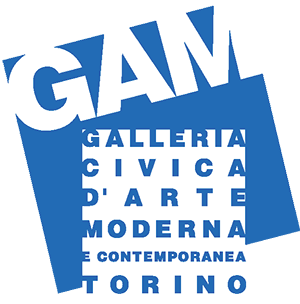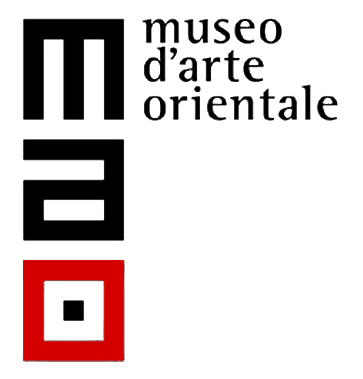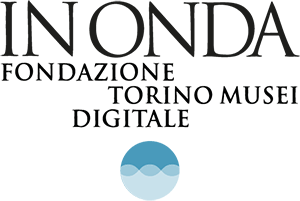Change! Yesterday, Today, Tomorrow. The Po
- Exhibition
- 27 June 2024 - 13 January 2025

The exhibition
Under the High Patronage of the President of the Republic, Palazzo Madama – Civic Museum of Ancient Art in Turin presents an exhibition that, together with an extensive territorial project, is intended to investigate in depth the issue of the climate crisis, offering a synoptic view of the changes that have taken place over thousands of years along the course of the River Po, offering a paradigm for what is happening on a worldwide scale.
The project has come about through a dialogue with the Department for Care of the City, Public Green Spaces and River Banks of the City of Turin and through the collaboration between Palazzo Madama and key national partners who have long been active on issues of conservation and safeguarding of the environment, first and foremost the River Po District Basin Authority (ABDPO) and the Interregional Agency for the River Po (A.I.Po) together with the Po Biosphere Reserves, today coming together in the Po Grande MaB UNESCO Reserve. Alongside these, Turinese players, from Turin Politecnico to the University of Turin, to the European Research Institute, which carry forward research and study on the Po and water in general on a daily basis from different disciplinary perspectives, and with the media partnership of Rai Radio3.
Tackling the essential themes of climate change in an exhibition weaving together a visual story developed around the interaction between great paintings and photographs, illustrations and infographics capable of telling the story of the Italian landscape in all its complexity and structure, from the Alps to the sea, the exhibition project focuses the attention on the theme of water, and particularly on our Great River, which for millennia has governed the landscape and the lives of the population, which is a communication route but also offers essential support for agricultural and industrial activities; the exhibition also explores the consequences and analyzes the potential solutions put into effect over the territory by the various research bodies and those safeguarding the Po.
652 kilometres in length, 141 tributaries, almost 87,000 square kilometres of hydrographic basin, 19,850,000 inhabitants, 37% of Italy’s agricultural production, 55% of the national zootechnical industry: the Po and the Po basin, where 40% of the nation’s GDP is produced, is one of the areas with the highest concentration of population, industries and commercial activities at European level.
This incredible development has been made possible thanks to the historical stability and abundance of the volume of the waters of the largest river in Italy, which originate from countless sources and diversified natural processes – mountain springs, melting snow, glaciers, large lakes and lowland springs – but which have seen significant change in recent decades, leading to a phenomenon of crisis that is occurring everywhere at global level.
Precisely on account of its distinctive features and its effect as regards memory, historical stratification and landscapes, the Po – Roman and pagan, Byzantine and Longobard, of the feudal system and seigniories, of the countryside and the cities, romantic, agricultural, industrial, touristic and cinematographic – is able to render the climate crisis and its effects in a symbolic and clearly perceivable way: the appearance of the planet is changing faster than it did in the previous millennia and the role human beings have played in this process has now been clearly demonstrated.
The Change! exhibition aims to describe these changes, offering opportunities for reflection on the crisis and on the possible scenarios of adaptation to it, but also to call for action and awareness creation: now is the time to act.
With strong scenographic and emotional impact, thanks to the layout design project by Emilio Alberti and Mauro Zocchetta, the exhibition opens with a formidable installation capable of projecting amazing historical maps, infographics and original illustrations created by Jacopo Rosati onto the landscape aged ten million years, then narrated through the world of fossils, commencing the story of the birth, history and evolution of the Po Basin first and the Po subsequently, with a focus on the changes characterized by centuries-old progress and by a sudden acceleration during the Anthropocene, our own era.
The second section illustrates the natural life and human work in the area of the Po Basin through photographs and paintings by major artists partly coming from the collections of the Civic Museums of Turin, to underline the exceptional nature not only of the assets of the GAM and Palazzo Madama, but also the historical funds of the Photographic Archive: oils, watercolours, etchings and temperas by Giovanni Michele Graneri, Jean Louis Daudet, Giuseppe Pietro Bagetti, Antonio Fontanesi, Carlo Pittara, Giuseppe Pellizza da Volpedo and other great artists will be placed alongside photographs by masters such as Vittorio Sella, Mario Gabinio, Riccardo Moncalvo, Franco Fontana, Mimmo Jodice and Bruna Biamino, to render fragments of everyday life, traditions, the activities and relationships of the people who live along the banks of the River Po, as well as to outline the landscapes of the Po through the centuries.
The third section, on the other hand, is devoted to the Anthropocene era. In around 1950 the emission of large quantities of greenhouse gases reversed the process of neoglaciation, generating a phase of climatic warming of anthropic origin, which is the story that the current drought of the Po tells: the reduction of its volume, caused by the shrinking of the Alpine glaciers, brings about a diminution in the volume of water that reaches the Delta.
The story in images told by Mondoserie.it is a crystal clear example of the way in which man originally looked at the Earth and how this gaze has progressively become less farsighted, to the point of losing sight of the overall horizon, which is now being revealed through disruptive events.
The droughts affecting the Po are the local symptom of a planetary problem, that of the shrinking of the glaciers and the polar icecaps, told in the exhibition through satellite images showing the map of the hydrographic basin of the Po, with the hundreds of blue veins descending from the valleys of the Alps and Apennines, to then come together and to give form, in the Po Valley, to the great blue trail of the Po flowing into the Adriatic. A hydrographic network that appears as a series of “blood vessels” guaranteeing the territory the lifeblood of the element water, so necessary for the very survival of the plant and animal world, and which, in recent years, has undergone radical changes: in some periods of the year the great riverbed is reduced to piles of gravel and sand, colonized by bushes and young plants, the tributaries have dried up and the delicate ecosystem of the Delta is being placed at risk by salt water intrusion.
Yet the Italian drought is a unique case, since it derives from one of the many paradoxes that characterize this country: although Italy is fifth in Europe for quantity of precipitations after Croatia, Ireland, Austria and Slovenia, we are the one that stores less water than any other, since we cannot manage to stockpile it.
Faced with this scenario, it is necessary to imagine new solutions: mitigation and adaptation must envisage not only actions that contribute to reducing the vulnerability of human beings to the current (or anticipated) impact of climate change, as well as extreme weather phenomena and the rising of sea levels, but also new agricultural protocols to guarantee food security and compensate for the loss of biodiversity, as well as the production and supply of energy from alternative sources to the existing ones, laying new foundations for a more balanced relationship between mankind and nature.
The images by Adaptation.it invite us to rediscover the capacity to correct our own mistakes, to mitigate them, and the possibility for mankind to explore new solutions, making space for our incredible capacity to adapt to new, unexpected and often also unfavourable situations, exploiting inventiveness, tradition and simple good sense.
The Change! exhibition falls within a broader project that Palazzo Madama is devoting throughout 2024 to the themes of the rights of people and self-determination, the climate and Europe, and is the culmination of a reflection begun in April with Planet Week together with the World Bank on the occasion of the G7 Climate, Energy and Environment and developed through the exhibition Max Pinckers. State of Emergency, which will see the activation of a collateral exhibition Memories of Water. Words and Images curated by the Atlante Linguistico Italiano; cycles of international conferences organized by the River Po District Basin Authority, the Department for Care of the City, Public Green Spaces and River Banks of the City of Turin, together with an extensive programme of activities, workshops and reduced price days that will involve all citizens in the rediscovery and protection of this great water artery.
The exhibition, curated by Tiziana Caserta, Anna La Ferla and Giovanni C.F. Villa, will be accompanied by a catalogue published by Silvana Editoriale, with contributions by - among others - academics from the University of Turin, the University of Bergamo, Turin Politecnico, Milan Politecnico, the ENEA, Slow Food, Adaptation.it and Mondoserie.it.
Tickets
Full € 12,00 | Reduced € 10,00
The ticket service ends one hour before closing time.
Opening hours
Monday and Wednesday to Sunday: 10 a.m. - 6 p.m.
Tuesday closed.
Holiday hours:
Sunday 8 December:10:00 a.m. - 6:00 p.m.
Monday 23 December: 10:00 a.m. - 6:00 p.m.
Tuesday 24 December: 10:00- 2:00 p.m. (closed in the afternoon)
Wednesday 25 December: CLOSED
Thursday 26 December: 10:00 a.m. - 6:00 p.m.
Monday 30 December: 10:00 a.m. - 6:00 p.m.
Tuesday 31 December: 10:00- 2:00 p.m. (closed in the afternoon)
Wednesday 1 January: CLOSED
Monday 6 January: 10:00 a.m. - 6:00 p.m.

Purchase your ticket online
Go to the Fondazione Torino Musei webshop to buy tickets directly online.












